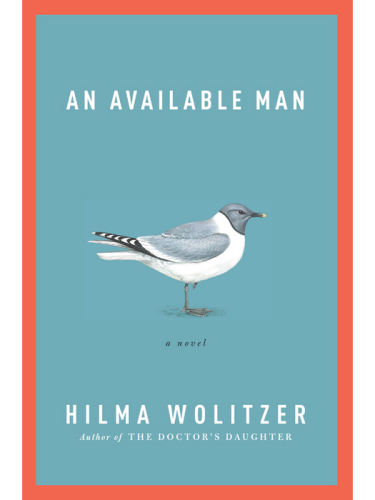
An Available Man
A Novel
کتاب های مرتبط
- اطلاعات
- نقد و بررسی
- دیدگاه کاربران
نقد و بررسی

September 26, 2011
Wolitzer (Summer Reading) looks at life after death; the life, that is, of a youngish widower after the death of his much loved wife. Families are Wolitzer’s turf, and she’s an observant and often humorous chronicler of domesticity and the stuff that comes with it: illness, loss, boredom, crankiness, and, on good days, love. Her main character, science teacher Edward Schuyler, is likable and believable, both in his grief and his confusion when interested women start coming out of the woodwork. When one turns out to be from his past, things take a slightly melodramatic turn, and though never escalating to a level of serious danger, the threat is there. Or perhaps the threat of a threat; it feels as if Wolitzer wants to heighten and defuse at the same time. Of course “domestic” doesn’t mean safe, and we’re supposed to share in Edward’s unease and in his hope that all will be well, but the effect is more irritating than suspenseful. When tension is packed off in a few pages in favor of a happy ending for all, it’s both a relief—we’ve gotten fond of Edward and want the best for him—and a disappointment, because of how contrived it feels.

December 1, 2011
Beatrice Schuyler is dead of cancer. Her widower Edward lingers on Larkspur Lane, ironing her clothes to hold onto a grief-filled connection. Wolitzer's (Summer Reading, 2007, etc.) insightful novel follows Edward, past 60 but still vigorous, as he fights through despair, frustration and numbness. Bee was only 57, and their 20-year marriage was thoroughly companionable and vibrantly sensual. With Edward trapped in mourning, his friends in the close-knit suburban New Jersey community urge him to re-enter the social whirl, ready to position an extra woman, compatible or not, next to him at dinner parties. Even his stepchildren, Julie, with whom Edward is quite close, and Nick and wife Amanda, are worried. To end Edward's self-imposed isolation, those three place a personal advertisement in the New York Review of Books. Wolitzer's Edward lives as an empathetic character, one to be respected and understood in both motivation and action. Edward is also revealed as fragile in a way only Bee comprehended, psychologically withdrawn for reasons that may relate to a love affair in his 20s that ended with Edward being abandoned at the altar. That first love was Laurel, a flighty and emotional fellow teacher with whom he had a passionate, powerfully physical relationship. That romance, as well as Edward's meeting and marrying Bee a decade or more later, and the comfort he found in his ready-made family, are presented in flashbacks that give the narrative color and depth. Sometimes ironic, sometimes melancholy, Edward's reluctant "dating after death" begins with toned and hungry Karen hot to finish dinner and head home for a romp in the hay. Roberta would rather talk about her late husband. Sylvia, 70 and shaped to appear 50 by plastic surgery, resigns herself to Edward's ambivalence. Lizzie, close friend of Edward and Bee, is eager for an affair. Only after Laurel reenters the story does Edward begin to comprehend the man that survived Bee's death. Literary fiction drawn out of the everyday world.
(COPYRIGHT (2011) KIRKUS REVIEWS/NIELSEN BUSINESS MEDIA, INC. ALL RIGHTS RESERVED.)

November 1, 2011
Edward Schuyler is now in his mid-sixties, but as a younger man he had his share of love's highs and lows. His first love, the beautiful Laurel, left him stranded at the altar. Years later he met Bee and her two children. He fell madly in love, and his family was complete. But after 20 years, Bee got sick and died. Once the shock clears, Edward is stunned to realize what a "catch" he is. When his grown stepchildren place a personal ad for him in the New York Review of Books, the women respond in droves. Edward is forced into the dating world, and the results are heartbreaking, maddening, comical, and poignant. Love and sex for this older generation is a hot topic (no pun intended), and Wolitzer (Summer Reading; The Doctor's Daughter) tells the tale well. She is surprisingly good at portraying a man's perspective. Although her writing is not as crisp as in some of her previous novels, this is a breezier tale with a lighter edge. VERDICT This sweet story of a man's diving back into the dating pool at an older age will especially appeal to readers in that demographic. [Library marketing; see Prepub Alert, 7/5/11.]--Beth Gibbs, Davidson, NC
Copyright 2011 Library Journal, LLC Used with permission.

Starred review from November 1, 2011
At 62, Edward Schuyler isto his dismayan available man. Burned in his 20s when he was left standing at the altar by his tempestous lover, Laurel, he finds true happiness nearly 15 years later with divorc'e Bee and her son and daughter. When Bee dies, too young, of pancreatic cancer, a still-grieving Edward is urged back into social life by his loving stepdaughter and stepdaughter-in-law, who take out a personal ad for him in the New York Review of Books. Dating after death isn't easy, notes a widow who responds to the ad, but most of the 46 responses go in the trash. Tamping down feelings of disloyalty to Bee, Edward does start dating again, with varying degrees of success, and one persistent ad respondent shocks him before he is able to feel again. Wolitzer has written before of the pain of losing a partner and its aftermath (notably in her first novel, Ending, 1974), and she does it with remarkable insight, grace, and humor, as when commenting that the recent dead are such a social menace when Edward attends a dinner party after Bee's death. A warm, keenly incisive view of life's vicissitudes by a writer too seldom heard from.(Reprinted with permission of Booklist, copyright 2011, American Library Association.)

























دیدگاه کاربران